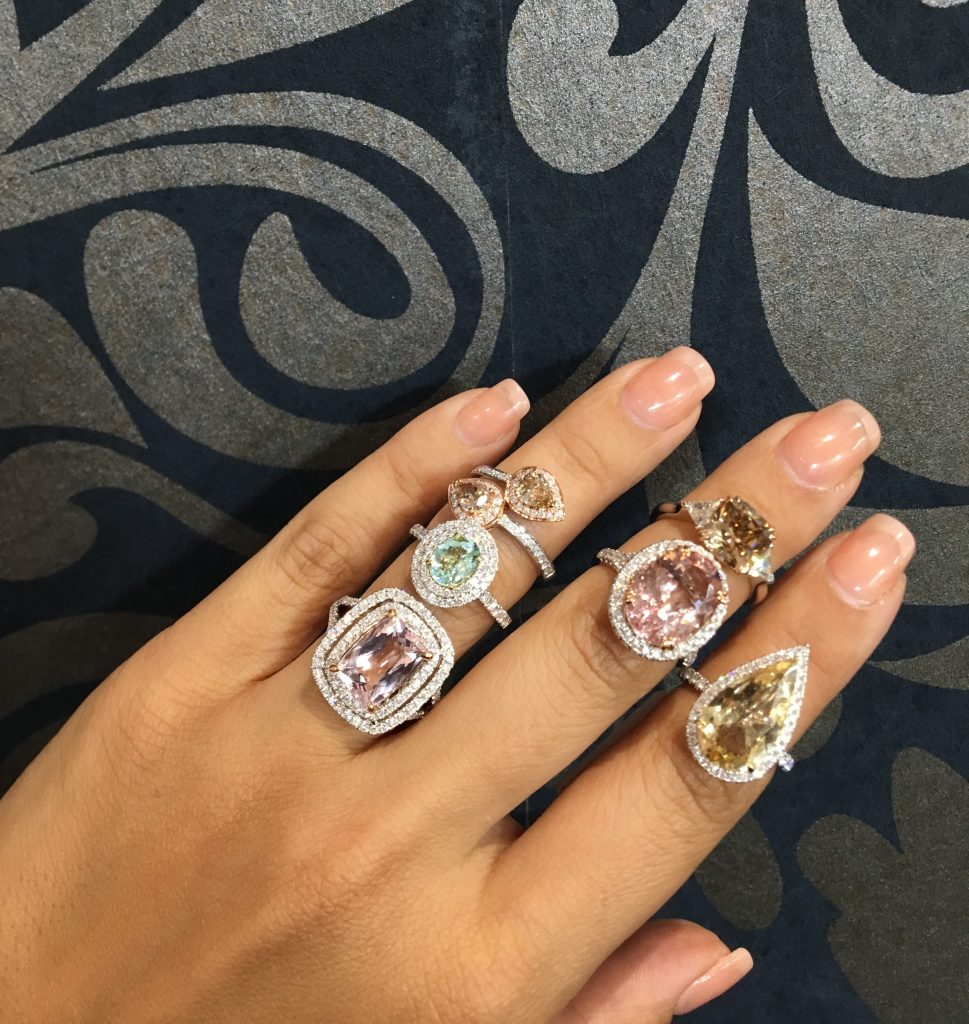“If you liked it then you should of put a ring on it,” Beyoncé/Sasha Fierce/Queen Bey, 2008.
Table of Contents
Long before Queen Bey sang those immortal words (we can’t be held accountable if Single Ladies is stuck in your head for the rest of the day), the engagement ring was a chameleon, changing forms and floating in-an-out of popularity for years before it’s resurgence in the 20th century.
And although we’ve come to know the classic engagement ring as a diamond, it wasn’t until the 1930s that the traditional style became a staple for couples worldwide.

Via Diamond World Fine Jewellery
So, if you’ve ever looked down at your rock and thought for a moment – if you weren’t distracted by its gorgeous sparkle – why it is that we wear such a precious stone to symbolise betrothal, we’ve found the answer.
It’s a history lesson you might actually enjoy.
Do As The Romans Do
If you’ve ever wondered why engagement rings are placed on the left hand, you can thank the Romans for that, as ancient authors Apion and Aulus Gellius both wrote that a nerve in the left hand led directly to the heart. Romantic, right?
The Romans later introduced two rings for bride-to-be’s – a gold one to be worn in public, and an iron one to be worn at home while she completed household chores. Not so romantic.
Years later in the 12th Century, the engagement trend had reached the Catholic Church and Pope Innocent III declared that engagement rings had to be worn and marriages – in churches – needed to be made public.

Via Diamond World Fine Jewellery
Along Came The Diamond
So while the engagement ring had existed for quite some time, the use of diamonds had yet to make its debut. Believe it or not, 19th Century Americans saw the use of thimbles as engagement symbols, with women using the bottom of the thimble as a ring after they were married.
However, one of the earliest examples of a diamond engagement ring came a lot earlier, in 1477 when Archduke Maximilian of Austria gave his fiancé Mary of Burgundy a diamond ring, unknowingly paving the way for the expectation of a diamond proposal.

Via Diamond World Fine Jewellery
From Rare To Everywhere
While the Archduke was one of the first to pioneer the gifting of a diamond engagement ring, it wasn’t until the 19th Century that diamonds became more of a viable option. With the discovery of large diamond mines in South Africa around 1867, the classic rocks soon flooded the market, thus becoming less exclusive.
Not wanting to lose the value of their discoveries, the De Beers Consolidated Mines, Ltd. was formed by a group of several South African mines as a means of controlling the flow in the market. Becoming more valuable, diamond engagement rings began to grow very popular.

Via Diamond World Fine Jewellery
The Power of Marketing
Turns out, the only things diamond rings needed to completely permeate the market was a great copywriter and an even better marketing campaign.
Seeing that the diamond market was on the decline since 1919 – with more modest rings climbing in popularity due to the terrible state of the economy – De Beers knew they needed something to drastically boost their sales. Cue New York ad agency N.W. Ayer.
Enlisting the biggest stars in Hollywood to wear diamonds and major designers to spruik them, the agency managed to lift sales up by 50 per cent in three years. Then came along copywriter Frances Gerety, who created the slogan “A Diamond is Forever,” rocketing sales sky-high and ensuring that the slogan would endure even until today.

Via Diamond World Fine Jewellery
So there you have it. Thanks to an Austrian Archduke, South African diamond mines, and a rock solid marketing campaign, you no longer have to worry about wearing a broken thimble as an engagement ring.
Better yet, you can find the diamond ring your heart desires at Diamond World Fine Jewellery. From classic styles to modern designs, you’ll know why Diamonds are Forever when you visit Diamond World.
Sources: Mental Floss, Wikipedia
